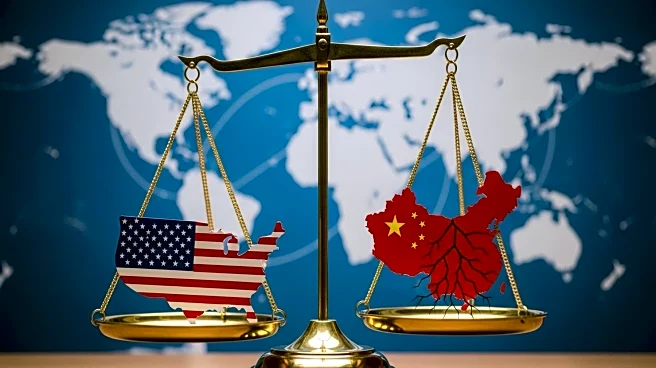What's Happening?
President Donald Trump accused China of committing an 'Economically Hostile Act' by not purchasing U.S. soybeans, which he claims is causing difficulties for American soybean farmers. In response, Trump suggested potential trade retributions, including
terminating business related to cooking oil and other trade elements. This statement follows recent tensions between the U.S. and China, particularly concerning tariffs and rare earth mineral exports. Trump's fluctuating stance on trade with China has led to market volatility, with major indexes dropping after his latest social media post.
Why It's Important?
The ongoing trade tensions between the U.S. and China have significant implications for global markets and agricultural sectors. Trump's accusations and potential trade actions could exacerbate economic uncertainties, affecting stock market performance and agricultural exports. Soybean farmers, in particular, face challenges due to reduced Chinese demand, impacting their livelihoods and the broader agricultural industry. The fluctuating trade policies also contribute to market instability, influencing investor confidence and economic forecasts.
What's Next?
The U.S. is considering implementing new tariffs on Chinese goods, which could further strain trade relations and impact global economic dynamics. Stakeholders in the agricultural and financial sectors will closely monitor these developments, as potential trade restrictions could alter market conditions and international trade agreements. The situation remains fluid, with potential diplomatic negotiations or retaliatory measures from China influencing future outcomes.
Beyond the Headlines
The trade dispute highlights the complexities of international economic relations and the impact of political decisions on global supply chains. The agricultural sector, particularly soybean farmers, serves as a critical component of the U.S. economy, and disruptions in trade can have cascading effects on food security and rural communities. The situation underscores the need for strategic diplomacy and balanced trade policies to mitigate economic risks and foster sustainable international partnerships.

















